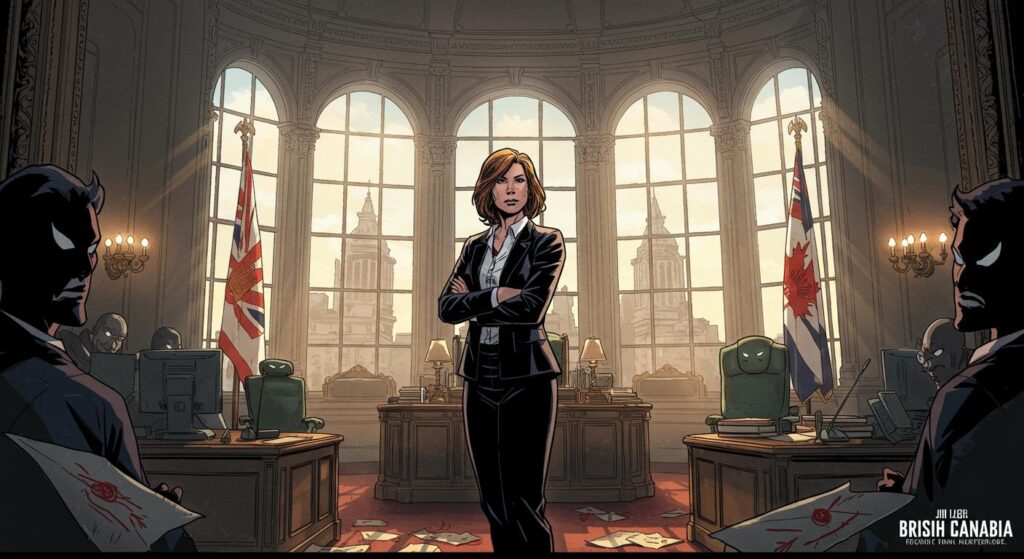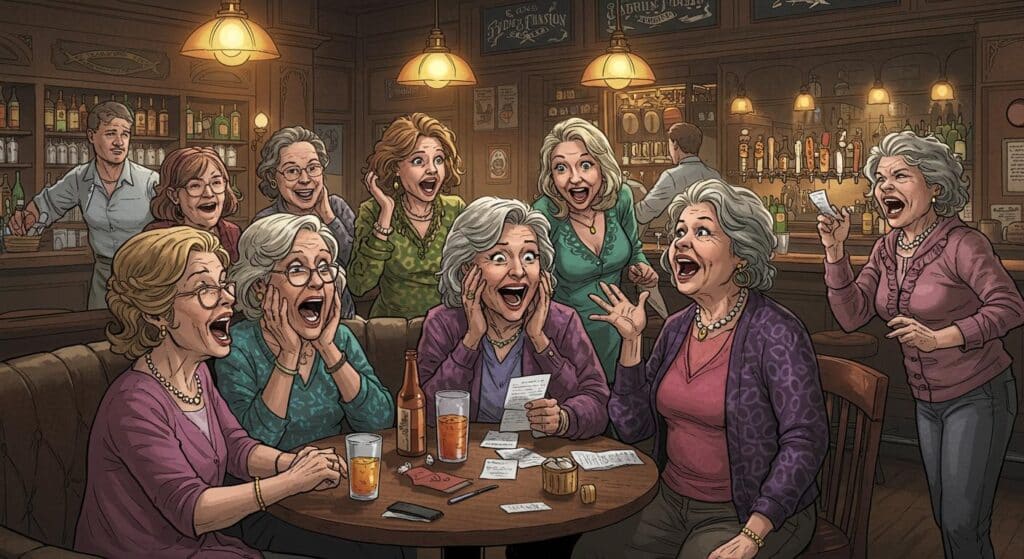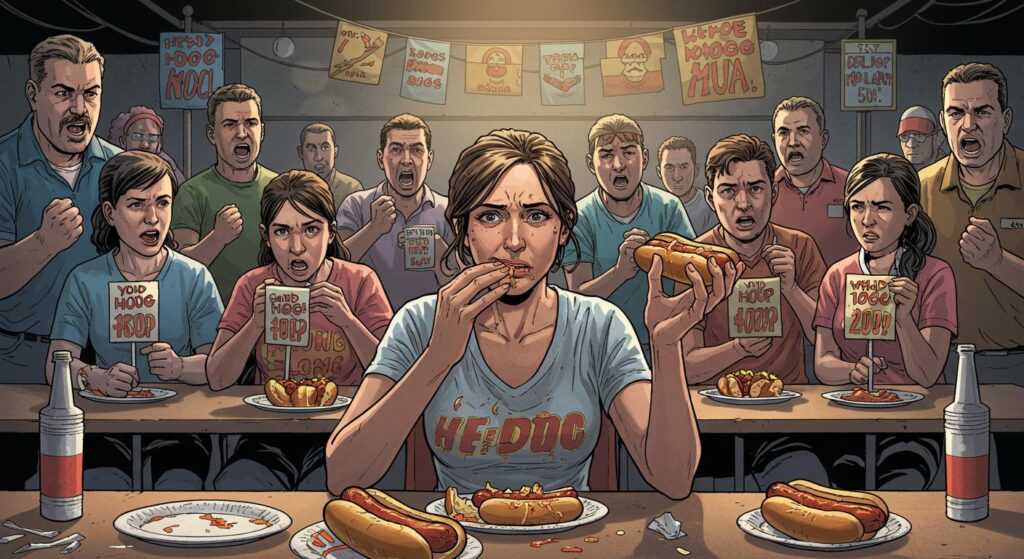Let’s be honest: most rules about public expression don’t usually make it to the frontlines of civic controversy. Yet, as CBC’s reporting on Quebec’s linguistic about-face documents, the fate of “Go Habs Go!” recently became a matter so thorny that it inspired ministerial proclamations, marathon email exchanges, and the possible reprogramming of a thousand digital bus signs.
The Cheer That Launched a Thousand Memos
For anyone who doubted whether a simple sports chant could prompt high-level interventions, Quebec’s recent experience suggests otherwise. According to CBC, which synthesized details from public records, officials, and emails obtained via access-to-information requests, the Office québécois de la langue française (OQLF) first directed Montreal’s transit agency to wipe the word “go” off more than 1,000 city buses, insisting that the preferred “allez” was the only acceptable way to encourage the home team on official displays.
It wasn’t always thus: the CBC article highlights how, for months, the OQLF pressed the transit agency to enforce full French orthodoxy. Then, as internal correspondence and interviews recounted in the article reveal, a public uproar erupted just as the Montreal Canadiens were kicking off a playoff run. In a twist worthy of its own sitcom B-plot, the transit agency swapped “Go! Canadiens Go!” for “Allez! Canadiens Allez!” mere hours before the first home game—prompting both derision and despair, as described in CBC’s chronology.
But as emails reviewed by The Canadian Press and summarized in the CBC report indicate, the behind-the-scenes tension didn’t stop there. Eventually, following pressure from public sentiment and an overt ministerial decree, the language watchdog reversed its stance. The new guideline, published in the OQLF’s dictionary, “partially legitimizes” the use of “go” in encouragement contexts, though “allez” is still the officially sanctioned term—the bureaucratic equivalent of a wink and a nudge.
Managing Culture, Complaints, and That Ever-Flexible “Gray Zone”
Politics and hockey are well-acquainted in Quebec, but it’s the mechanics of government that sometimes provide the greatest spectacle. As documented in the CBC article, Minister Jean-François Roberge of the French language portfolio publicly declared that “Go Habs Go” was part of Quebec’s living culture—asserting, with what even the language professor quoted in the piece calls a political “order,” that future complaints about the English slogan would not be entertained.
CBC’s account draws on both official statements and expert commentary. Benoît Melançon, an emeritus professor of French literature at Université de Montréal, speculated to the outlet that the OQLF’s new justification—especially their invention of the term “partially legitimized”—hints at discomfort among linguists and bureaucrats alike. According to his perspective, quoted in the CBC article, they were forced to weigh whether to “take into account what the minister is telling us… If we don’t take it into account, what are the consequences?”
Meanwhile, emails reviewed by The Canadian Press and summarized by CBC show even transit agency officials questioned the logic of the crackdown. In one witty aside preserved in agency correspondence, an official called this territory a “grey zone,” expressing frustration: “We’ve been using the word ‘go’ for years without a problem. Are we going to change everything because of one complaint?” Notably, the CBC article groups this dissent with the logistical headache the edict created: staff spent months manually swapping the word “go” off more than 1,000 buses—a true test of dedication to both language and bureaucracy.
Trademarks, Hashtags, and Quebec’s Cheerful Compromises
From social media hashtags to arena billboards, the word “go” has proven unshakeable in Quebec’s public celebrations. CBC also recounts several prior complaints: for instance, a 2021 report to the OQLF criticized the “GoHabsGo” hashtag emblazoned outside the Bell Centre, proposing (seriously, according to the complainant) that “Allez les Habitants allez” appear beside it and, if possible, in even larger letters.
Responses to these complaints have varied, CBC notes, with trademark law sometimes protecting the English slogan’s use in outdoor advertising. In the end, as the outlet summarizes, the language watchdog wound up reaffirming the right of “GoHabsGo” signs to remain.
This theme of compromise appears throughout the saga. When the transit agency asked the OQLF for clarification in May, after the playoff-fueled backlash, it was directed to a new dictionary entry for “allez”—one that, as detailed in CBC’s synthesis of the document, admits the Anglicism “go” has been “well-established” in Quebec encouragement since at least the 1980s. In a statement to CNN, OQLF spokesperson Gilles Payer explained that media coverage of the high-profile case led the office to “officially assess the acceptability” of the word for sporting use. The result: “partially legitimized” status, an odd halfway house that seems to bear the marks of intense internal debate.
Reflections on “Partially Legitimized” Cheering
So what now? According to a transit agency spokesperson referenced in CBC’s report, there’s still no decision on whether “go” will make its triumphant return to bus displays. In the meantime, the “GoHabsGo” sign remains outside the Bell Centre, unchanged and apparently immune to further interference. Bus signage, for its part, will stay put until fall maintenance rolls around, as CBC also notes.
There’s a peculiar charm (and a dash of absurdity) in watching officialdom wrestle with a three-letter word—especially one that, in the heat of a playoff run, is usually being chanted far too loudly for anyone to conduct a linguistic analysis. Are there other words in the Quebec lexicon now awaiting partial legitimization? Will future language disputes center on cheers, or do stadiums represent a unique “gray zone” where culture, law, and passion intersect? And, perhaps, do the buses—like their digital banners—sometimes need just a little encouragement to keep going?







